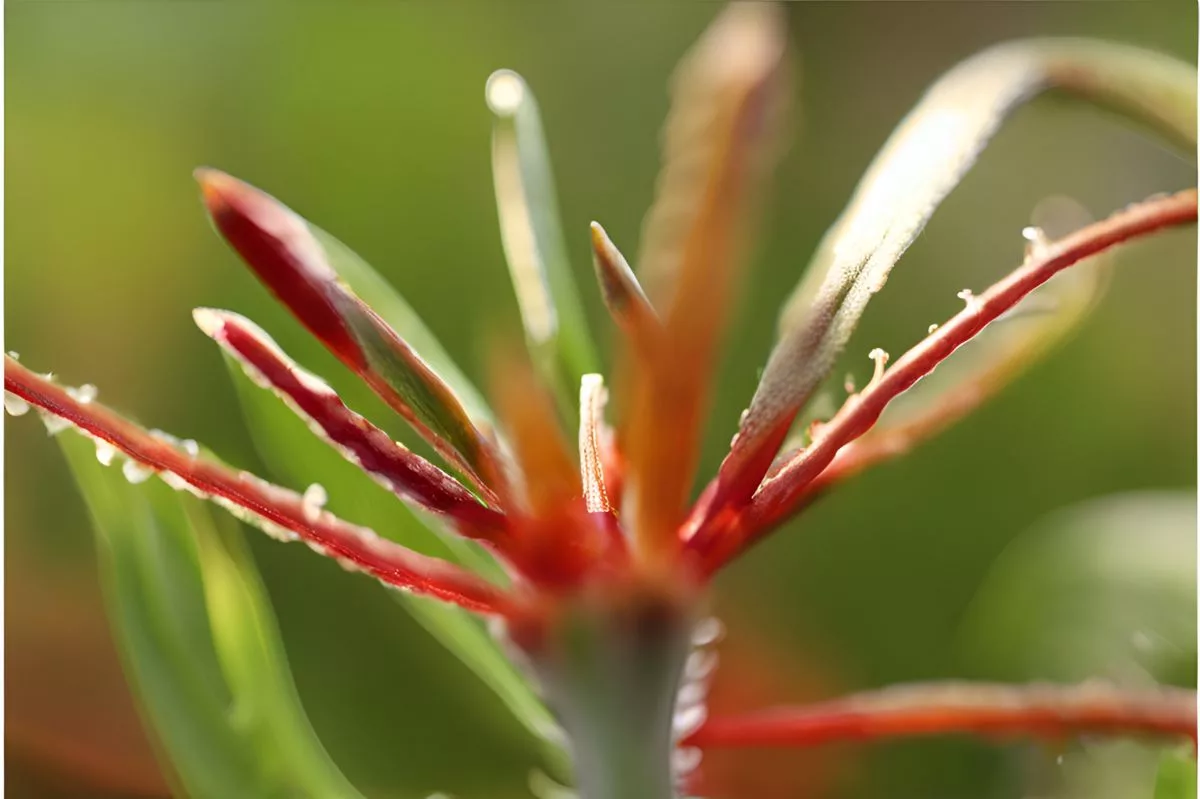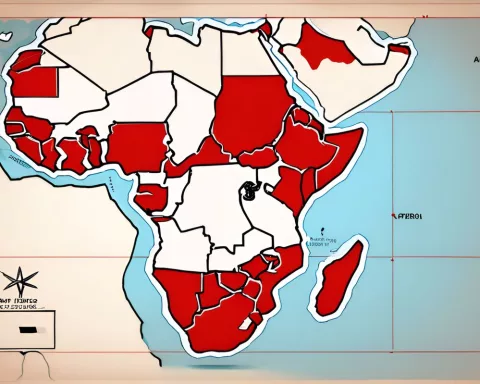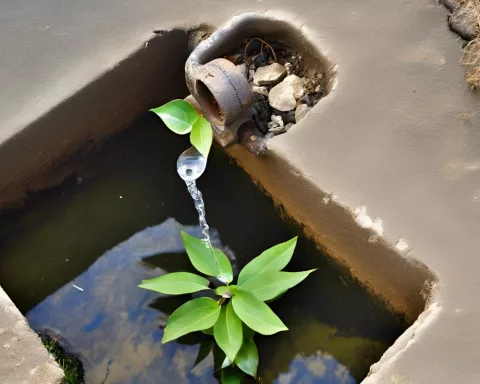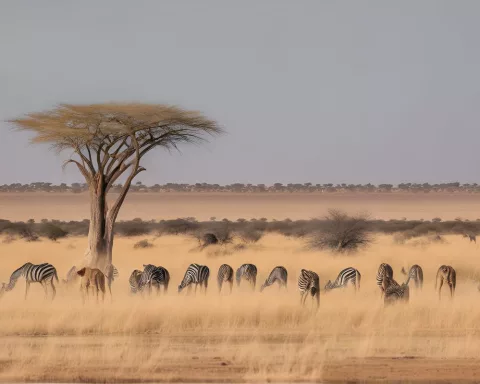Wellness tourism is booming in Africa, with South Africa leading the way. The market value of wellness tourism in Africa is set to reach $114.24 billion by 2029, with local customs and natural assets being incorporated into wellness experiences. South Africa is harnessing its natural assets, such as Rooibos, to offer visitors a glimpse into its wellness traditions and to carve out a unique identity on the international wellness tourism map. The trend towards health-focused travel represents a shift towards more conscious and sustainable tourism.
What is the trend of wellness tourism in Africa?
The trend of wellness tourism in Africa is on the rise, with South Africa leading the charge. The market value of wellness tourism in Africa is currently $89.56 billion and is predicted to reach $114.24 billion by 2029. Local customs and natural assets, such as Rooibos, are being incorporated into wellness experiences, providing tourists with a glimpse into South Africa’s wellness traditions. This inventive approach is carving a distinct identity for South Africa on the international wellness tourism map.
The Flourishing of Wellness Tourism
The global wellness tourism industry has undergone a remarkable transformation, propelled by the transition of traveler’s interest towards health, relaxation, and overall wellness. This shift is particularly evident in Africa, where the wellness tourism industry is thriving. The market value of wellness tourism in Africa currently sits at an impressive $89.56 billion, with experts forecasting a sharp increase to a whopping $114.24 billion by 2029.
The trend of wellness tourism is being effectively embraced by nations across the continent, with South Africa leading the charge. The Western Cape, the trailblazing province of the country in this domain, boasts that 45.2% of its visitors are actively engaging in wellness pursuits during their visit. The provinces of Mpumalanga and Kwazulu-Natal are not far behind, accounting for 14% and 12.9% of wellness tourists respectively. These visitors are often enticed by the prospects of spa retreats and refreshing short breaks amidst the provinces’ varied natural splendor and tranquil settings.
The Rapid Expansion of the Wellness Tourism Industry
The Global Wellness Institute (GWI), a renowned authority in the field, recognizes wellness tourism as a fast-growing segment of the broader tourism industry. This vibrant sector has been expanding at an annual rate of 6.5%, markedly surpassing the overall growth rate for tourism.
Adele du Toit, a spokesperson for the SA Rooibos Council (SARC), extols the breathtaking landscapes, lively cultures, and rich biodiversity of South Africa, factors she believes enhance its allure as a leading African wellness tourism destination.
However, South Africa’s strategy for wellness tourism doesn’t just rely on its natural beauty. The country also harnesses its unique natural assets, specifically Rooibos – a flexible health asset that sets South Africa apart in the competitive wellness tourism market. “Rooibos is a powerful botanical gem unique to our country,” Du Toit announces with pride. Globally praised for its antioxidant qualities and numerous health benefits, Rooibos opens the door to incorporating local customs into wellness experiences.
Local Traditions as Wellness Assets
Encouragement is given to local enterprises to incorporate Rooibos into spa therapies, retreats, and culinary experiences, giving tourists a genuine glimpse into South Africa’s wellness customs. The use of Rooibos provides an opportunity to explore nature’s abundance to drive tourism in this sector, thereby fuelling the local economy.
Du Toit envisions wellness retreats nestled within expansive Rooibos farms, featuring wellness packages, Rooibos tasting tours, and culinary experiences. This inventive approach melds nature and tradition, carving a distinct identity for South Africa on the international wellness tourism map.
Beyond just numbers, the boom of wellness tourism in Africa, specifically South Africa, represents a shift towards more conscious and health-focused travel. It highlights the possibilities of weaving indigenous natural resources and cultural treasures into worldwide tourism trends. With its wealth of resources and innovative strategies, South Africa is steadily becoming a top-tier wellness tourism destination, providing uniquely African wellness experiences to global travelers.
1. What is wellness tourism in Africa?
Wellness tourism in Africa is a fast-growing segment of the tourism industry that focuses on health, relaxation, and overall wellness experiences. The trend is being embraced by nations across the continent, with South Africa leading the charge.
2. What is the market value of wellness tourism in Africa?
The market value of wellness tourism in Africa is currently $89.56 billion and is predicted to reach $114.24 billion by 2029, according to experts.
3. Why is South Africa a leading destination for wellness tourism?
South Africa is a leading destination for wellness tourism due to its natural assets and incorporation of local customs into wellness experiences. The country harnesses its unique natural asset, Rooibos, to offer visitors a glimpse into its wellness traditions and to carve out a unique identity on the international wellness tourism map.
4. How is the wellness tourism industry expanding globally?
The wellness tourism industry is expanding globally at an annual rate of 6.5%, markedly surpassing the overall growth rate for tourism. The trend represents a shift towards more conscious and sustainable tourism.
5. How are local traditions used as wellness assets?
Local enterprises in South Africa are encouraged to incorporate Rooibos into spa therapies, retreats, and culinary experiences, providing tourists with a genuine glimpse into South Africa’s wellness customs. The use of Rooibos provides an opportunity to explore nature’s abundance to drive tourism in this sector, thereby fuelling the local economy.
6. What does the surge of wellness tourism in Africa represent?
The surge of wellness tourism in Africa represents a shift towards more conscious and health-focused travel, highlighting the possibilities of weaving indigenous natural resources and cultural treasures into worldwide tourism trends. With its wealth of resources and innovative strategies, South Africa is steadily becoming a top-tier wellness tourism destination, providing uniquely African wellness experiences to global travelers.













